"You are such a....man. You'd rather take it out on a piece of wood than deal with the problem face-to-face."
Recently uprooted from his home in the name of progress, Bill Haywith came to Denver already unsettled. Faced with the prospect of also losing his daughter to Norman, Bill struggled to confront the changes in his world, and his relationship with Rita, face-to-face. To cope, he attempted to root himself in the past, a strategy which, despite its flaws, ultimately positioned Bill to receive the tools he needed to embrace the future.
A Not-So Enchanted Development
"Yeah, some enchanting developer wants to turn our RV park into Wally's Wacky Waffle World."
It seems insignificant until you realize that it's perhaps this pending eviction from the premises that prompted Bill and Sunny's spontaneous trip to Denver. They're displaced, and probably haven't figured out what they're going do next. While we may never know for sure whether or not it's actually the case, given the quick mention of the developer---a circumstance Bill absolutely volunteered---it's not unreasonable to assume it was on his mind and quite possibly bothering him.
| Consequently, whether he acknowledges it or not, Bill arrives already in a bit of a funk. So by the time Norman barrels into Bistro Ramon, and knocks Sunny's glasses into the blender, Bill's general unrest begins to surface. The first hint, of course, in how short he was with Norman, replying "Is that supposed to be a joke?" to his "musical species of the '60's" comment. It's only after this that Bill mentions the developer, potentially linking his attitude with Norman to his unrest over Wally's Wacky Waffle World. |
Holding On
Rather than address the conflict of where he fits head on---and likely at a loss at how to do so---Bill chose to deflect his internal conflict by entrenching himself in the past through his music, his memory and, of course, by actively rejecting the future---all of which can be tied to Rita.
Music
It's clear that Bill is a big fan of music. Twice during the scene in Bistro Ramon, Bill mentions not only his attendance at Woodstock, but expresses great interest in the Jukebox, which featured music from his generation. When he and Sunny visit the DLO, he's wearing his Hendrix concert t-shirt from '69 and immediately connected with Joe over being in the front row at the same concert. As they work, Bill, Joe and Sunny even entertain themselves with the "Flower Power Sing-Along Hour."
| Not coincidentally, the song we hear the trio belting out as the POstables return to the DLO is "Blowin' In The Wind," a song, we discover, Rita used to sing to her imaginary friend, Hudson the owl. So, not only did Bill et. al. make extraordinary (hero-level) progress in reviving the forgotten DLO space for Rita's benefit in the present, they did so while drawing on a personal piece of Bill and Rita's past. Memory "Well one day when she was six, she didn't want [Hudson the Owl] to be invisible anymore, so I went to the toy store and made him visible." |
| But it's a piece of his identity immediately challenged by the revelation that Norman knew about Hudson the owl because "[Norman and Rita] tell each other everything." What was once between father and daughter is now known to the fiancé. It's clear this disturbed Bill, as it interrupted his only attempt to voluntarily give Hudson to Rita, perhaps a gesture meant to remind Rita of how dad used to be her hero. In this same scene, Norman reveals the product of his own "heroics," displacing dad even further in the process. |
Not coincidentally, not only does Norman know about Hudson, he also engaged in his own bit of heroism by milking a cow, a gift Norman presents to Bill, obviously in an attempt to earn Bill's approval. Clearly defensive, all Bill can muster, is "Thanks." He doesn't accept the gift, nor does he react to Sunny and Rita's attempts to elicit some kind of reaction about how thoughtful it was, or acknowledge that "[Norman] milked it himself." Bill's moment of heroism was not only interrupted, it was ultimately denied and overshadowed by Norman, in a sense. In response, Bill just froze. And, to make matters worse, Bill didn't even take the milk with him when he and Sunny left.
| This is the most direct example of Bill rejecting Norman. But the fact of the matter is, Bill wasn't actually rejecting Norman, he was rejecting what Norman represented. For Bill, Norman was a harbinger of change, a direct challenge to his status as Rita's hero, and the sign that his little girl was grown up and prepared to enter a new chapter in her life. For Bill to accept Norman---or his gifts---would be to acknowledge and agree to this transition. Paralyzed, Bill simply resorted to silence in the moment. The next time Bill's moment of glory was imposed on, however, Bill, unfortunately, wasn't so silent---but not for the reason you might think. |
As complicated as it sounds, one wonders if Bill wasn't trying to get a rise out of Norman so that he might be able to continue to justify keeping him at arms' length. Not to be baited, Norman simply finished his thought and continued about his business. The only thing left was for Bill to tell Rita to "Go on ahead, I'll catch up." Given his rather rude comment, Rita, no longer able to ignore his behavior, was left with no other choice but to confront it, forcing Bill to come face-to-face with the very thing he tried so desperately to avoid.
Entrenching himself in the past in an attempt to "hold on," Bill's music, memory, and attempt to reaffirm his status as Rita's hero through work on her new office, were only temporary avenues through which Bill could channel his growing internal crisis. But when those avenues were inadvertently interrupted, and inevitably disappeared, Bill ended up on a crash course with the reality he was trying to avoid. Little did he know, the answer of where he fit in Rita's life was waiting on the other side of his uncertainty.
Letting Go
| Laying It Out "I never said I didn't like him---I don't get him." This is key, because it's admitting that there is something more complicated happening with Bill in relationship to Norman than he let on. It's less about liking Norman, and more about understanding him. What Bill doesn't connect is the fact that he thwarted every opportunity to do so, which Rita explicitly called out. Perhaps realizing his error, Bill deflected once more with, "He lost your engagement ring...what does that say about a guy?" Bill hadn't quite come to the understand that there was something for which he needed to take responsibility yet, and found a way to not be the bad guy. To ease the blow, he adds, "I'm sorry, it's just not what I imagined for you." With each succeeding comment, Bill revealed how his mind ruled his experience of Norman. But instead of leading with his head, he needed to lead with his heart, something which both Norman and Rita were about to provide Bill the opportunity to do, each revealing his place in Rita's life in the process. |
When Rita described what she imagined for herself in a life partner, it could also be considered her definition of "her hero." It's important to note that "Somebody sweet...who is right there to pitch in and help when you need it" are actually two things Bill already exhibited by this point, first in the story about how Sunny got her name, and then in his willingness to help Joe clean out the new space.
When Rita revealed that "[Norman was] exactly what [she] imagined for [herself]...because she imagined someone like [Bill]" it functioned very specifically---it put Norman and Bill on the same plane with one another. To Rita, they were, in a sense, the same person. Suddenly it's pretty obvious why Bill didn't imagine someone like Norman for Rita---who considers themselves a blueprint for their child's life partner? At the same time, it meant that Rita "held out" for her hero--her dad. It necessarily answered the question of where Bill fit: he meant so much to Rita that she chose someone that was a reflection of him to marry.
| Rita's words cut past all of Bill's "sad dad" behavior, and spoke to the core of his conflict. Unable or unwilling to verbalize his concern about where he stood with his daughter, Rita's words revealed that nothing, in fact, would change. In a sense, Bill's legacy will live on in Norman and, by extension, in her marriage. Though he still needed to repair things with Rita, by reaffirming his special place in her life, Rita helped Bill begin to process her engagement in a different way. Ultimately, it enabled Bill to see Norman in a different light as well. |
"Taught [Her] How"
Not surprisingly, Bill's next interaction with Norman was distinctly different from those that came before, aided in no small part by Norman's thoughtful (re-)proposal. In order to fully embrace Norman, Bill had to see him as something other than a harbinger of change taking Rita away, and displacing him in the process. Much like Rita used her words to reaffirm Bill's place in her life, Norman used his to acknowledge and honor Bill's unchanging role as Rita's father.
To describe Rita as "...wise...smart and so brave...," and credit Bill with being the "wise...smart...brave" person who "taught [her] how," Norman acknowledged Rita as a product of Bill's love and example. Who Rita became is a result of who Bill is, and since Rita will never change, his influence and example will continue, a legacy which Norman recognized and honored in this moment. Where Norman was a harbinger of change and a direct challenge to his status as Rita's hero, Norman demonstrated with his words and actions to Bill that nothing would---or ever could---change. Open to making the connection between who he raised Rita to be and who she has become, Bill began to accept the change taking place before his eyes, indicated by offering Norman his hand and telling him, "Nice job."
| From this interaction, a third interpretation of "[He] used to be [Rita's] hero....now she has two" emerged. Instead of being a dynamic of loss or displacement, it is a statement of continuity, of two men connected by their love of one little girl, now a woman. Forced to verbalize and begin to confront the core of his conflict, Bill's eyes were finally opened to the answer to his struggle. Rita's revelation that she chose Norman as a reflection of her father, and Norman explicitly crediting Bill with raising Rita to be the woman he fell in love with, created an unexpected, but profound, definition for Bill's continued role in Rita's life both now, and in the future. |
Embracing Change
No longer needing to constantly assert his place as Rita's "hero," Sunny presented Rita the gift "from [her] dad" instead of Bill doing it himself. To reunite Rita with her not-so-invisible childhood friend was symbolic of Bill allowing Rita to move onto this next stage of her life. Additionally, he volunteered some more background about how Hudson the invisible owl became "visible," unlike earlier when the revelation Norman knew about the owl caused Bill to clam up. Bill's goodwill continued in his apology to Norman, acknowledging he "raised [Rita] to love, [only] to be a jerk when [she] finally went out and did it" as they sat across from each other at the table.
But perhaps the most powerful thing about Norman and Bill's interaction is Bill gifting the RV keys specifically to Norman as a "honeymoon present." It acknowledged not only that their marriage was happening, but served as Bill giving Norman permission to guide and take care of his daughter after they say, "I do".
| Transferring the RV to Norman and Rita also answered the original question which set Bill on the path of uncertainty in the first place. By relinquishing the keys, the displaced future in-laws committed to "getting off the road and settling down around [Denver]," a move which restored stability to what was only recently a very tenuous living situation. With peace on a deeper level, Bill acquired clarity of vision to not only see the future for his daughter, but for himself, too. |
Learning By Example,
~C
The Ballad Of Bill Haywith: A Hypocrite Hippie | Displaced Dad
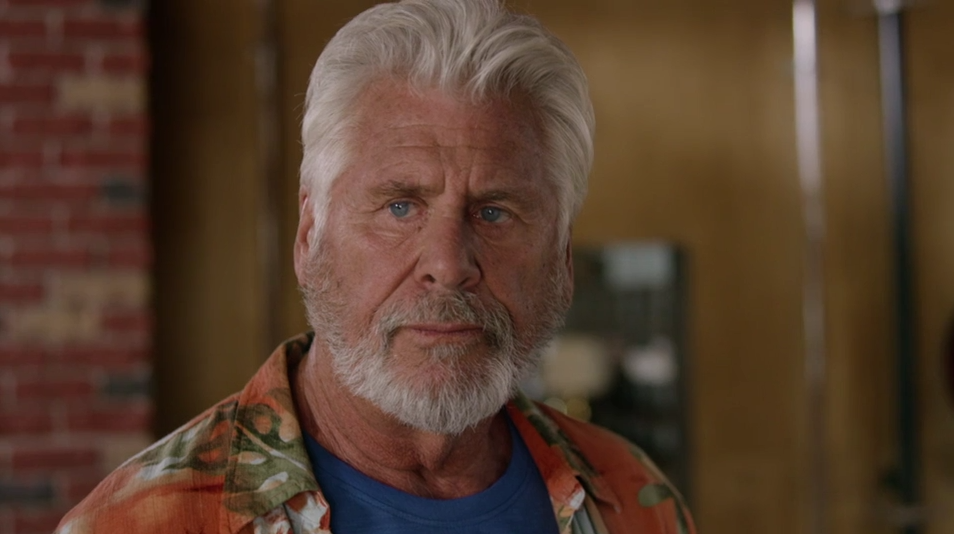
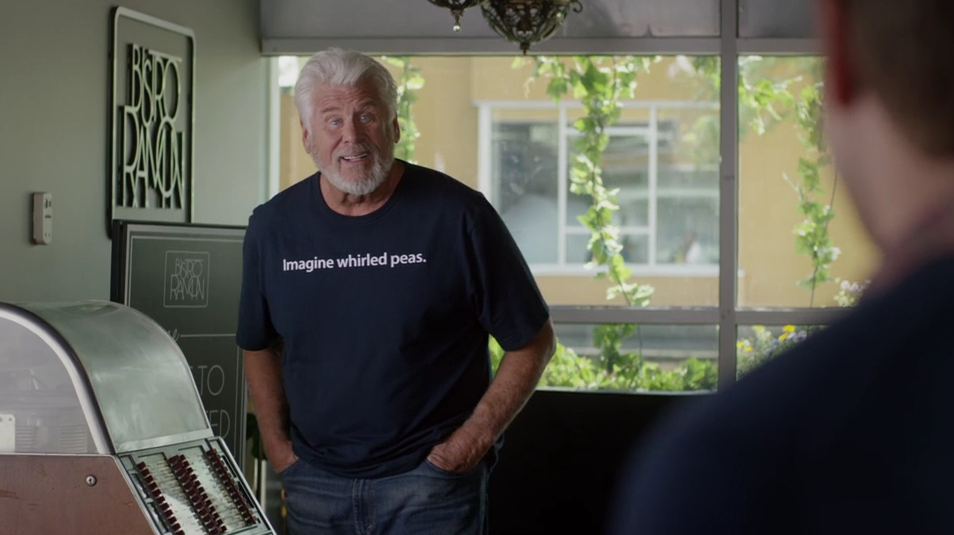
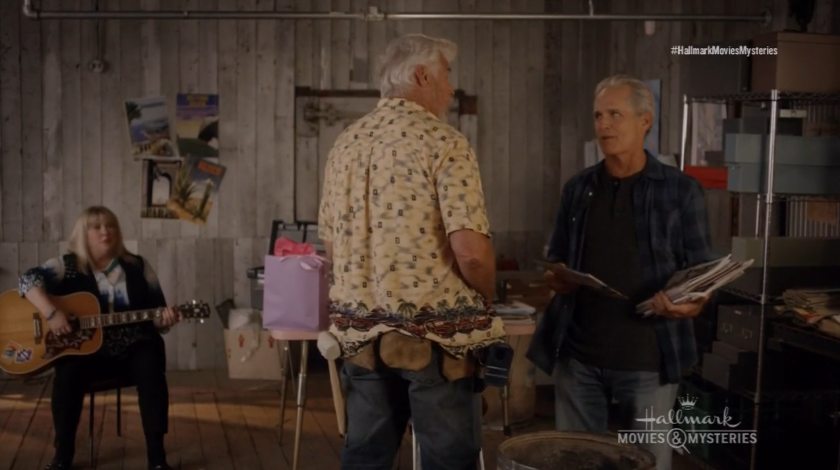
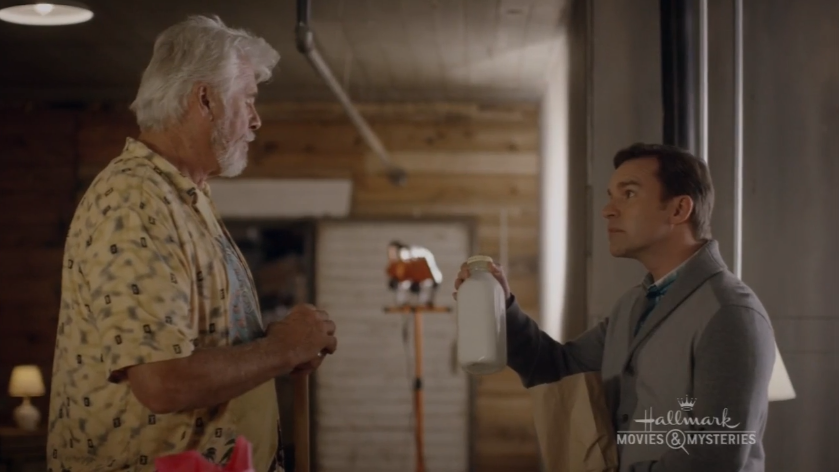
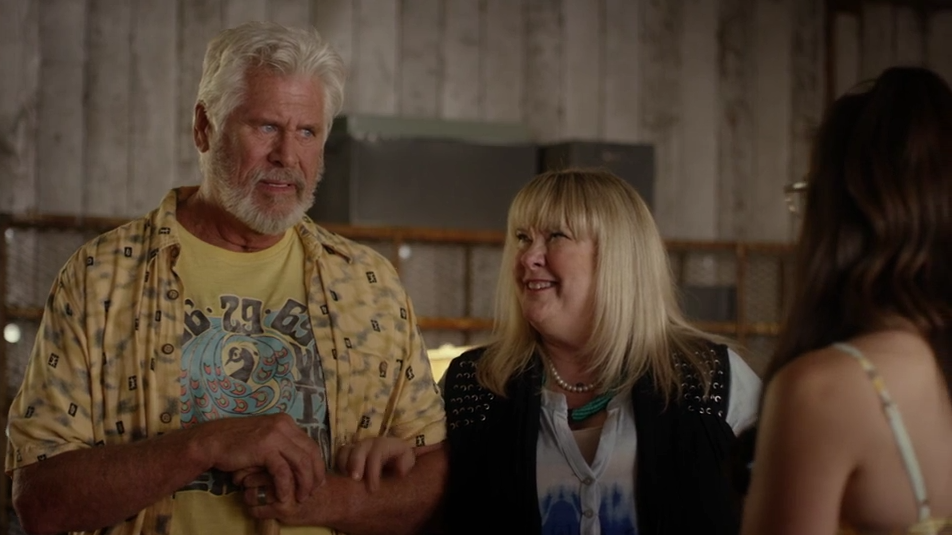
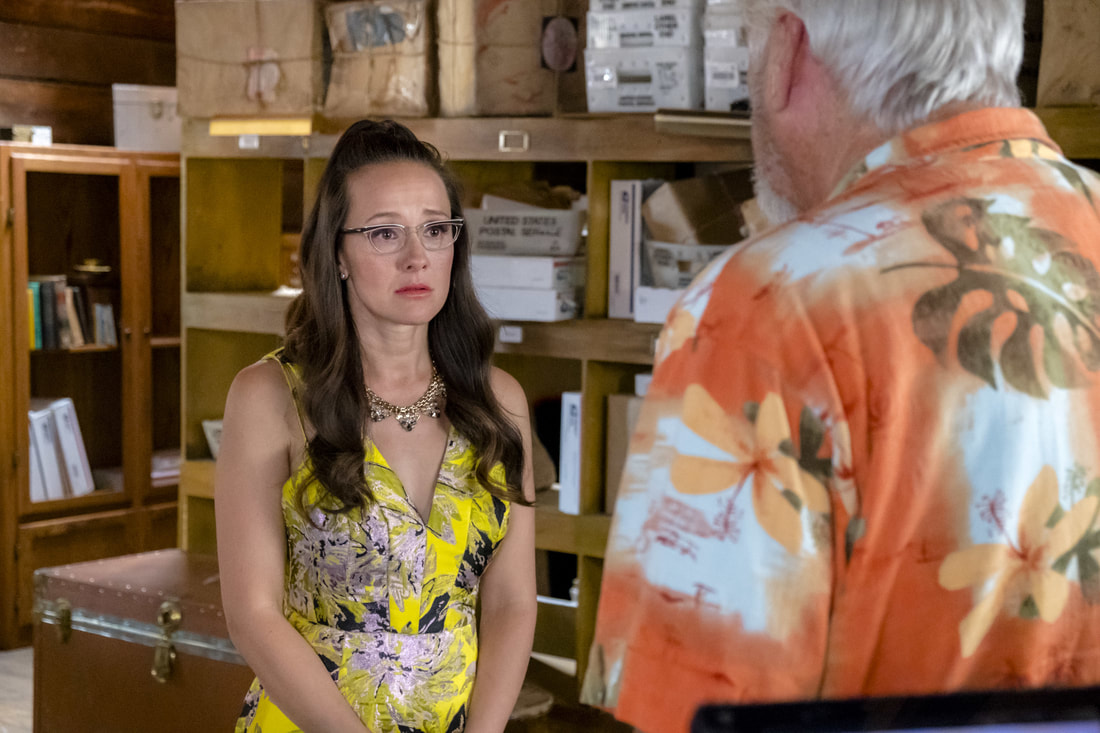
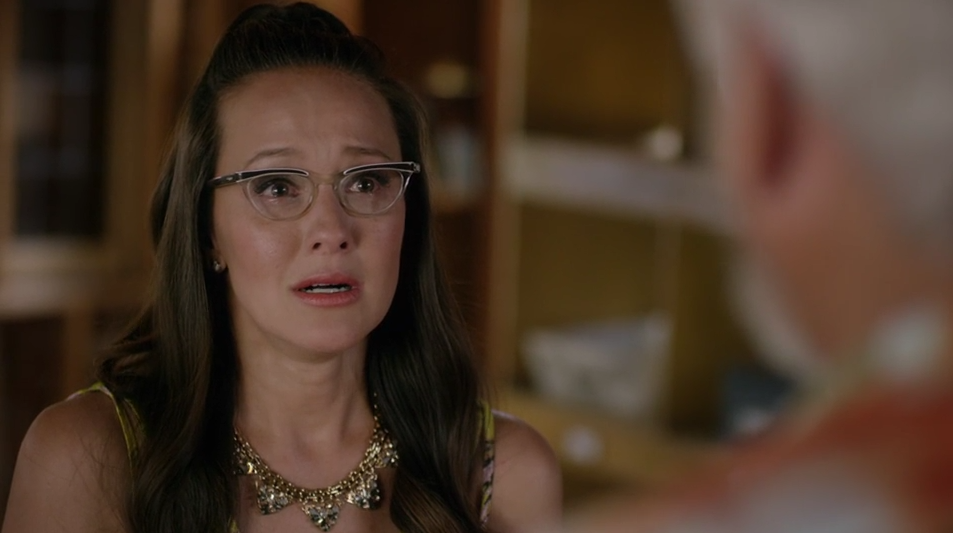
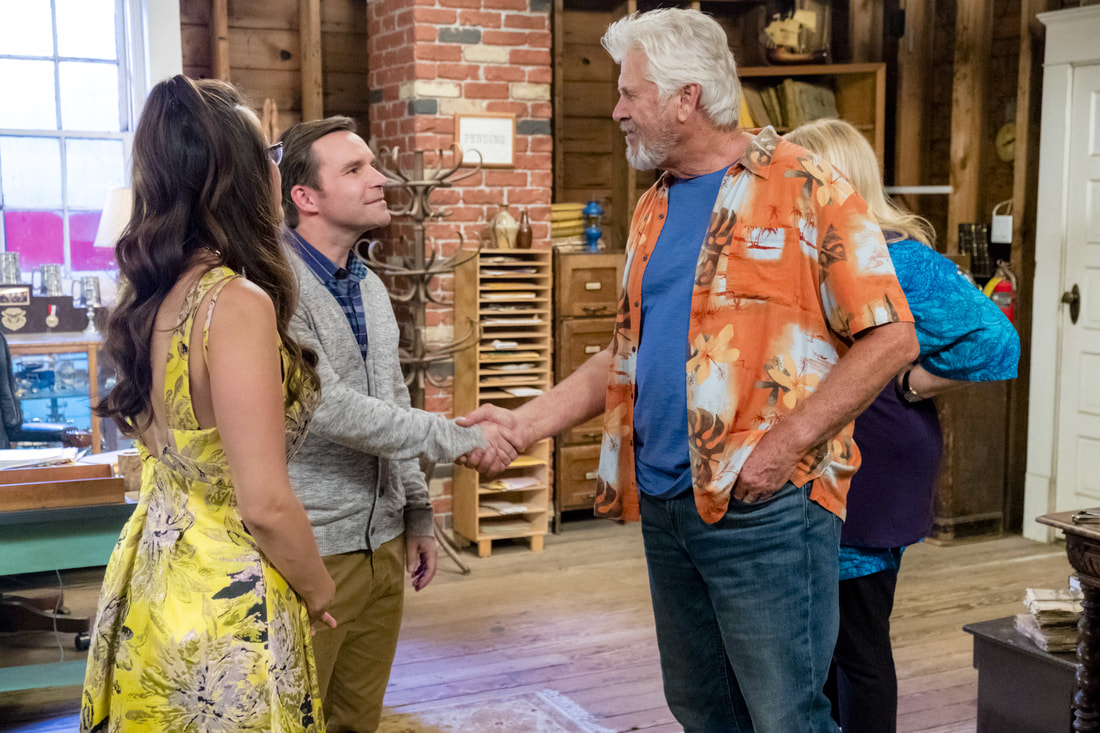
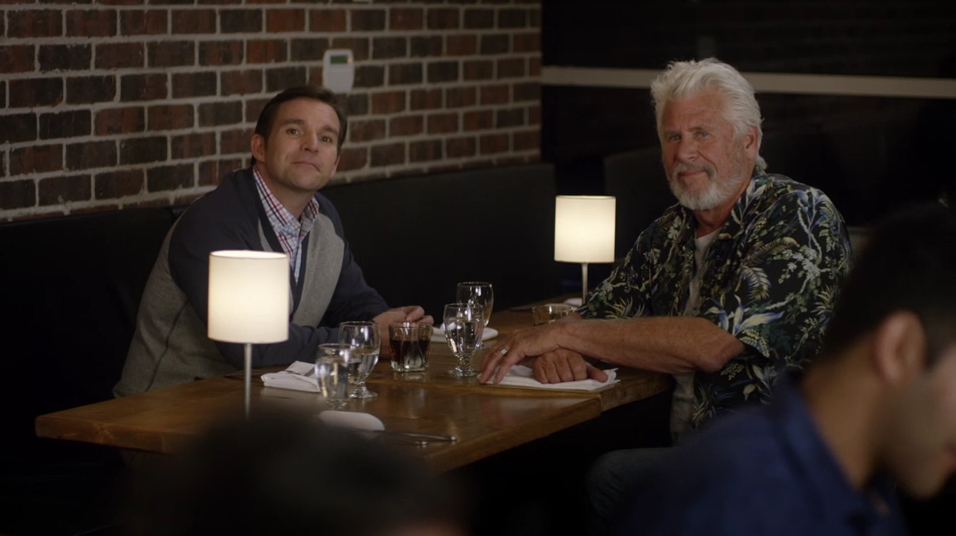
 RSS Feed
RSS Feed
